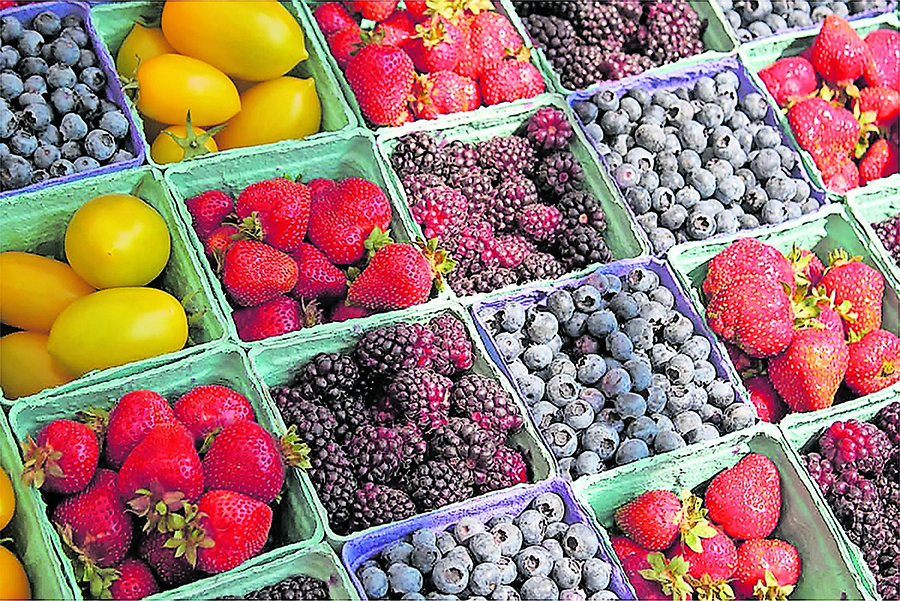South Africa depends immensely on its natural resources for energy. This realisation has recently once more caused a stir in communities concerned about ecological devastation. The Shell seismic blasting case in the Eastern Cape, along with the fact that the country still primarily relies on coal as a national energy source, has shown up slack in terms of green legislation in our energy sector. We urgently need to revert to alternative methods of energy consumption, and the nation’s food system forms part and parcel of the needed move.
With the pandemic, changing weather patterns, ever-increasing food prices and poverty levels, there has never been a better time for food systems reform. South Africa’s food system suffers from the lack of green policy initiatives, and has few affordable and sustainable food production protocols as seen in nations with similar economic and market demographics. Although there is little time to address issues of energy and environmental devastation caused by the national grid, looking at our food system, the time is critical right now.
The fact that resources such as water are limited, and that we have few food producers, means we are sitting on a ticking time bomb regarding our food system.
The nation is presently producing sufficient food, but while dealing with a range of dynamic climate, political demographic, and economic challenges. In short, we need to produce more, to feed more people with dwindling resources.
Conducting a study in a remote rural area in western North West province, demonstrated to me how significant indigenous knowledge is in food pathways and practices.
For a millennium, pre-colonial African agri-pastoral societies produced and traded in grains and produce. Trading and producing particular foods created a rich and mutually beneficial exchange of local knowledge and innovation on food storage, processing and preservation.
 What makes a nation food secure, and what are the critical factors that keep a nation in a state of being food secure?
What makes a nation food secure, and what are the critical factors that keep a nation in a state of being food secure?
Locals would know which particular grains, berries and produce was suitable based on climate, season, environment and so on. Many pre-colonial societies grew and prospered as a result, as we know from the remnants of Great Zimbabwe, Mapungubwe and the Tswana settlement of Kaditshwene in the 17th and 18th centuries.
But how can food practices from an era that had no electricity help solve modern-day South African food system issues?
Well, since 2007, South Africa has increasingly experienced power cuts. These have ranged from an hour or so of no power to several days in some parts of the country. When this occurs, many of our already financially precarious and food-insecure households find themselves caught between a rock and a hard place. Food spoils with every passing hour of load-shedding.
 A new study shows how 45% of the available food supply is wasted in the country.
A new study shows how 45% of the available food supply is wasted in the country.
In 2020, more than 18 500 000 people in South Africa experienced food insecurity of some form. The experiences of those in rural areas must be particularly difficult: remote, inaccessible, and housing some of the highest numbers of our vulnerable and precarious population groups, the elderly and children.
Pre-colonial epoch food practices provide a plethora of solutions that could, with the appropriate application, help curb some of these issues. For instance, by applying indigenous crop cycling on modern tracts of land, we would be able to reduce the heavy carbon footprint left by our linear farming methods.
In some cases, indigenous food practices mimic natural systems, leaving behind minimal waste. The limited ecological footprint of pre-colonial food practices demonstrates sustainable practices, which we must adapt to modern use.
Of course, a proposal to revolutionise our food system to incorporate such practices is often met with questions of volume and quantity. In theory, our current methods of food production are centred around mass production, hence the use of genetically modified organisms. But for how long will we be able to produce in this manner?
We need to start looking at ways in which food systems can benefit the population while in turn being sustainable and economically viable. South Africa is at the forefront of food production on the continent, but we stand an even bigger chance to lead the world in the use of indigenous and sustainable methods of food production. These form a rich aspect of our history and heritage.
We have the world’s highest inequality levels and the biggest gap between the rich and the poor. Alternative methods of addressing our challenges as a nation are critical, and evidently go beyond food production. Furthermore, South Africa has some of the highest obesity rates in the world. This is mainly due to our heavy consumption and adaptation of western diets.
The world is moving towards sustainable methods of food production, leaving conventional lifestyles and everything that encompasses the Anthropocene and its destructive nature behind. The developing world has an opportunity to leap-frog industrialised nations by employing their extensive indigenous knowledge reservoirs.
How South Africa produces food today along with the rest of the continent and the world does not guarantee the same volume of production in the future. We therefore need to start looking at alternative ways of making and producing food. One way of doing so is looking at how we used to produce, process, and preserve food in our history!